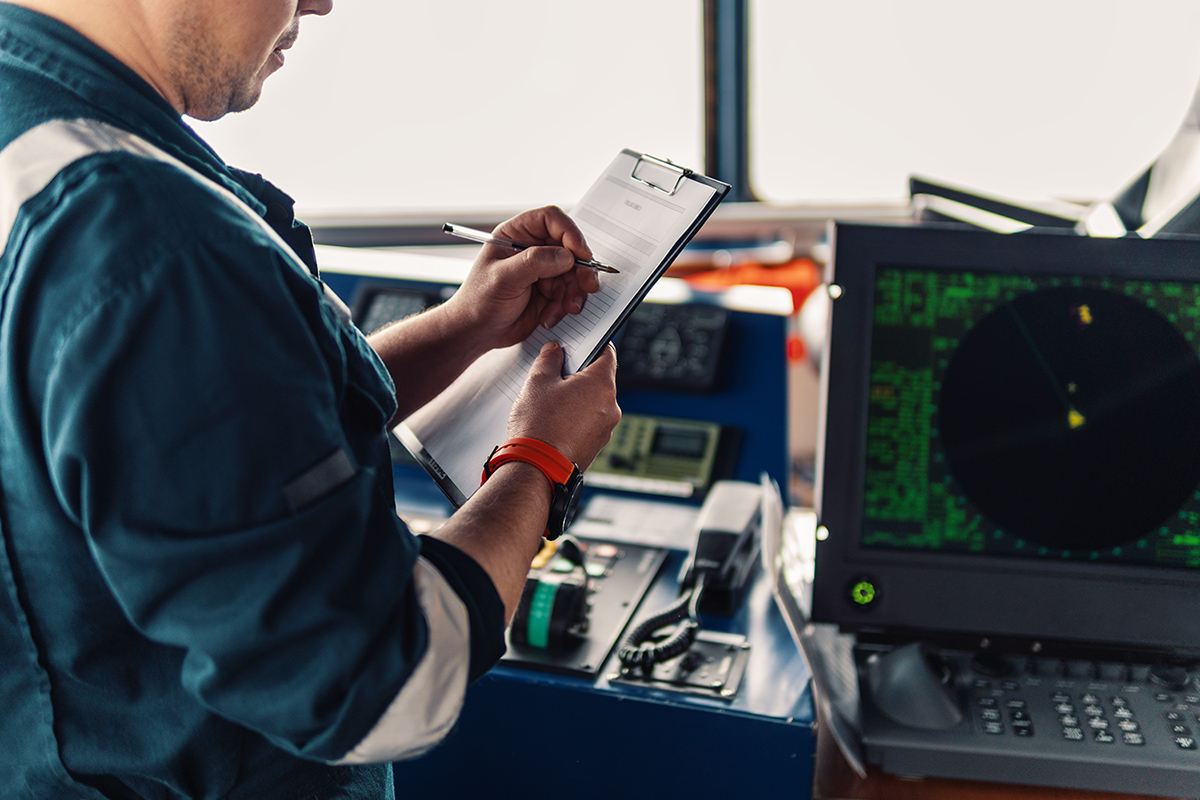Daily, weekly or monthly: how often the GMDSS equipment should be tested on board the ship
GMDSS equipment must work properly to perform the functions assigned to it. To ensure this, regular testing of the ship's radio communication equipment and reserve power is carried out: daily, weekly or monthly, depending on the type of device.
Testing procedures are performed by the GMDSS radio operators, and may differ upon equipment’s manufacturer.
The results of the checks are entered in the Radio Log Book. A brief description of the operational status of the equipment should be recorded along with the name of any station that was contacted during the tests. All cases of unsatisfactory operation of radio equipment are described in detail in the log, and the captain must be notified of the existing problems.

DAILY TESTS
-
VHF DSC
During the mandatory daily testing, the internal connections, the transmitting output power and the device display are checked. The functioning of the DSC system is tested without transmitting any signals and using the built-in test facility.
-
MF/HF DSC
The daily test is also performed with built-in testing equipment without radiating signals.
-
INMARSAT-C
It is important to make sure that the device is logged-in, in the desired Ocean Region. The data should be displayed on the top line of the screen.
-
GMDSS batteries
Batteries, as a reserve energy source, should also be tested once a day; during the test, their charge status is checked.
* * *
The availability of paper in MF/HF, Navtex, INMARSAT-C printers is also checked daily.
WEEKLY TESTS
-
MF/HF DSC
Live testing on the MF/HF DSC distress and safety frequencies with coast stations is limited to once a week. More frequent test calls overload the system, creating interference for distress and safety calls.
To check the operation of the DSC facilities, it is necessary to make a test call to a coast radio station fitted with DSC, on MF (i.e. on 2187.5 kHz) and on one HF channel. Note that not every shore stations has an automatic acknowledgement facility. If this is the case, contact the station by R/T and request for an acknowledgement on their working frequencies (for example, on MF 2189.5/2177 kHz).
There is another way to check the performance of MF/HF equipment. If possible, you can send a test call to a passing vessel and request confirmation.
-
VHF DSC
Once a week, it is recommended to perform a DSC call between the two sets of VHF. To do this, a selective call to the duplicate set on your own ship can be made (preferably using the lower power setting). After making sure that the automatic acknowledgement function is enabled, both sets can be tested with a single call.
A live test for VHF DSC is not performed.
MONTHLY TESTS
-
VHF Handheld Radio
The check is carried out monthly at a frequency other than Ch.16 (other than on 156.8 MHz). If the transceiver has a sealed type, this becomes impractical.
-
406 MHZ EPIRB
The self-test function of EPIRBs should be checked at least once a month. The beacons are also to be examined for physical damage. It is necessary to check the expiration date of the battery and the condition of the HRU (hydrostatic release unit), to check for the lanyard and the conditions of contact with seawater. The safety clip must be properly attached.
-
AIS-SART
At least once a month, the AIS-SART should be visually inspected and checked for the battery expiry date. It is also important to ensure that the MMSI label is legible and the support stand is intact.
AIS-SART testing should be carried out sparingly to extend the battery life and prevent unintentional activation.
When conducting the test in port, the port authorities must be warned in advance about the activation. The successful completion of the test will be indicated by the ship's devices accepting AIS data (AIS unit, ECDIS, radars).
-
X-band SART
SARTs are not required to be tested routinely, however, they should be physically examined at least once a month. It is important to pay attention to the expiration date of the battery, as well as to the safety clip, it should be on its own place.
It is not recommended to perform a self-test whilst at sea. If the activation takes place in port, you must first notify the port authority of your intentions.
The self-test of a number of SARTs is a live test. The user's guide will help you conduct the test correctly.
If there is still a valid reason to perform the SART test at sea, the vessel should first check its 3-cm radar to see if any ships are within range. Then, before any live activation of the SART, a safety priority VHF DSC announcement should be made. It is considered enough that the SART is active for only 2 or 3 sweeps of the radar.
-
GMDSS batteries
Once a month, the emergency batteries must undergo a full examination.
In the case of non-sealed wet cells, a complete examination of each battery is to be made cell by cell. The general status report is entered to the GMDSS Radio Log.
Other types of cells need to be visually examined, and the results should be entered in the report. In accordance with the manufacturer's recommendations, timely replacement is performed.
* * *
There is another type of testing of GMDSS equipment - annual inspections. They are performed by qualified specialists - radio surveyors.
During such surveys, they carry out a thorough check of the onboard equipment’s operability with the help of professional GMDSS testers.
By Olga Davydova





Very interesting